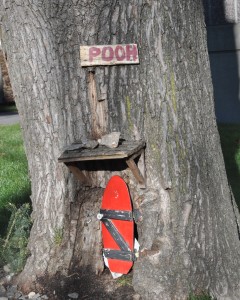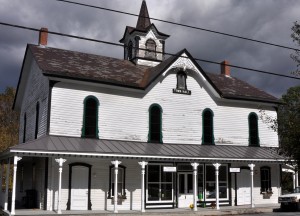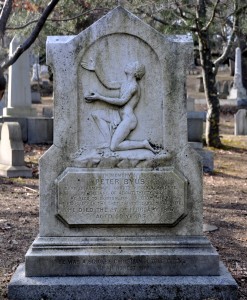
Schadenfreude! Schadenfreude!! I’ve been singing that to myself for weeks.
My favorite German word scans perfectly into the opening bars of the ‘Ode to Joy’ in Beethoven’s Ninth Symphony. Joy in the pain or fall of the mighty – the Murdochtroids, Strauss-Kahn – is about all that’s been fun this summer for those of a progressive bent.
James Carroll, the eminent journalist and memoirist, reminds us in his Boston Globe column Monday that schadenfreude – a word he doesn’t use – is a debased, albeit very human, joy. In fact, it’s soul-destroying, society-destroying.
Carroll begins by crticising the collusion in publicising cases between law enforcement agents and the press – a corruption, I suspect, as old and smelly as the earliest newsprint wrapping dead fish.
Its most recent embodiment is the ‘perp walk’ which Carroll aptly describes as:
…the ritual whereby law enforcement collaborates with explosive media coverage – a broad public seemingly invited to take “cannibalistic” pleasure in the humiliation of one who has yet to be convicted. A puritanical condemnation, combining the speculation, rumor, and guesses in which pundits trade, can simultaneously transform the condemned into an object of rampant titillation, especially when the matter is sex. For the proud and the powerful, the perp walk, replayed in endless loops on cable and over social networks, can be a grotesque form of punishment that obliterates the presumption of innocence.
(The man I credit with the popularisation of the perp walk was Rudy Giuliani, the US Attorney for the Southern District of New York (New York City) under President Reagan (1983-89). Enough said.)
Carroll strolls from the perp walk to the courtroom:
Dramas of the court define the mythic center of the public imagination – the never-ending reruns of “Law & Order’’ being the most obvious case in point. In the courtroom, the betrayal of virtue is reckoned with, but the legal forum’s very ubiquity as a cultural holy-of-holies suggests that far more is being dealt with than the miscreant behavior of marginal characters.

From the time I was five, I was in and out of courthouses. Their rooms held no mysteries for me – except the courtrooms. I have seen many holy places and shrines that affected me less than the most ordinary courtroom. Still.
And, the more one learns about how they came to be in Anglo-American society, the more sacred they become.
In this cause, I can’t recommend more highly Geoffrey Robertson’s The Tyrannicide Brief. As he reveals, much of what we regard as a defendant’s rights – the right to know the evidence against him/her, the right to counsel – were invented for the trial of King Charles I. The trials of the mighty can change society.
But Carroll makes a different point:
The cases of great figures cut down to size function as civic morality tales because, however good most people are most of the time, temptation is universal. Lust, greed, ambition, envy, fear – choose one. Or three. Every human must navigate the triple labyrinth of animal impulse, rational awareness, and moral choice. No one is immune from the recognition to which St. Paul came: “For the good that I would, I do not; but the evil which I would not, that I do.” (Romans 7: 19) It takes nothing away from the gravity of criminal acts, or the unacceptability of the exploitation by the powerful of the weak, to see in the courtroom contest between truth and deceit a process that implicates observers as well as antagonists.

It is that collective complicity for good or ill, for right or wrong, I think overwhelms me in courtrooms. I first saw Arthur Miller’s The Crucible performed in the round. The arrangement kept me from separating myself from the judge and townspeople driving toward the horrible executions of the witches.
But the public search for the tie between choice and consequence, which is, after all, the meaning of both morality and law, goes to deeper questions. How does character shape action? Do we get what we deserve? We imagine that those who are well known are somehow unlike us, that fame and wealth and power are instruments of control over destiny. When we obsess about their foibles, follies, accidents, crimes, and tragedies, we are working to let go of illusions about ourselves. Fallibility, contingency, foolishness, self-deceit – welcome to the human condition. What alone redeems it, and makes it noble, is the truth, which, despite the oath, is never whole, always mixed. Therefore the story is unending. That is why – duhn-duhn! – we never get enough of law and order.
I assumed when I first read the column that ‘law and order’ was a typo, lacking initial caps and quotation marks. I’m not so certain now. I sense irony in Carroll’s last sentence. We want what we ourselves ensure we’ll never have.
Note
I’ve collected quotations from what I read for nearly 20 years. No one has contributed more to my archive than James Carroll. His challenging weekly column is a major reason I continue to buy The Boston Globe every day.
Recent Comments